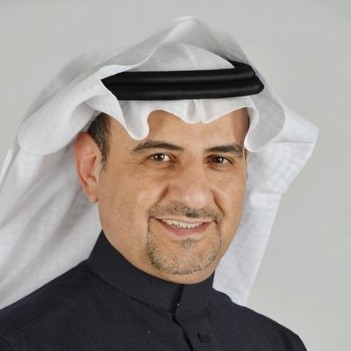Enabling developing countries to become self-sustaining will power the global circular carbon economy of the future
Saudi Arabia is a case in point. With a long history of mining, the Kingdom has in recent years recognised the critical need for many of the minerals in the estimated $1.3 trillion Arabian Shield. With that foresight, we developed a strategy that is creating a mining powerhouse built on a foundation of sustainability.

As part of efforts to build this powerhouse, the Saudi government overhauled its mining legislation turning the country into a much more attractive place for investors, while also adding substance–and enforcement teeth–to sustainability.
We have made it easier for investors to access financing for mining projects and have put in place mechanisms to support exploration and survey activities while ensuring greater security for their investments and predictability on the outcomes.
At the same time, we have tightened environmental requirements and implemented stricter penalties for violators in an effort to guarantee the sustainable foundation of our future as a new regional mining hub.
It is critical that we expand sustainable mining for two primary reasons: demand and security. In the coming years, demand for many commodities is expected to grow exponentially. Copper demand alone could soar to 19 million tonnes annually by 2030, according to Wood Mackenzie, while aluminium demand could reach 29 million tonnes by that year.
In terms of security, we must have multiple sources for many of the minerals and metals needed for an equitable future economy. Currently, China is the undisputed global leader in rare earths, producing 140,000 tonnes of these last year. Chile is home to almost half of the world’s lithium reserves.
By 2025, renewables are projected to surpass coal as the largest source of power worldwide. By 2033, sales of electric vehicles will surpass those of internal combustion engines and hybrid vehicles in China, Europe and the U.S. Our future will be powered by solar panels, wind turbines and EVs, all of which require significant amounts of rare earths and lithium.
According to the World Bank, the production of minerals such as graphite, lithium and cobalt could increase by nearly 500% by 2050. By bringing developing nations along with the rest of the world on the journey towards a circular carbon economy, we will all benefit and make the world a better, safer, more just place.
As a member of the G20, Saudi Arabia takes its global economic leadership role seriously, so we are aiming to help developing nations make the most of their mineral resources by sharing the lessons we have learned, and by serving as a regional hub for other countries in the Middle East, Central Asia, and North and East Africa.
Over the last 18 months, despite the headwinds negatively affecting FDI worldwide as a result of covid-19, investments in Saudi Arabia have been increasing steadily, reaching the highest-ever level in the second quarter of 2021, with more than $13.8 billion invested thanks to our national strategy of facilitating investments in the Kingdom.
Yet such investment opportunities exist across the new frontier markets of the Middle East, Central Asia, North and East Africa. These new mining frontiers in which the industry is just getting started have the opportunity to shape investments from the outset.
Future Minerals Summit
To this end, at the start of 2022, the Future Minerals Summit will gather mining industry, investors and government stakeholders from across these dynamic markets to discuss opportunities and the future of the industry, and critically, how all can contribute to the sustainable transformation of the industry.
There is no doubt that mining will be essential to the green transition. Without the minerals and metals required, we will be unable to produce the EVs and wind turbines and solar panels needed to fuel the green economy. For that, we will need investors, business leaders and governments to work together to reform mining into a more environmentally and socially responsible sector.
The Future Minerals Summit will provide the forum for interested participants to learn how Saudi Arabia achieved its reforms and what the future of the industry holds in light of the green transition needed to protect future generations from the damaging impacts of climate change.
The Future Minerals Summit takes place January 11-13 in Riyadh.




